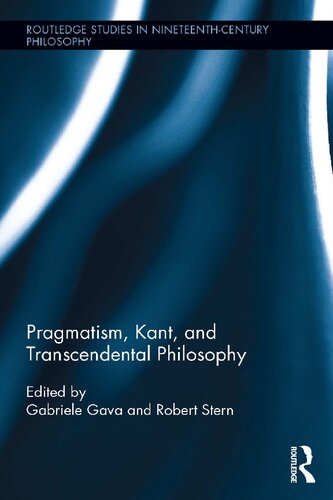

Most ebook files are in PDF format, so you can easily read them using various software such as Foxit Reader or directly on the Google Chrome browser.
Some ebook files are released by publishers in other formats such as .awz, .mobi, .epub, .fb2, etc. You may need to install specific software to read these formats on mobile/PC, such as Calibre.
Please read the tutorial at this link: https://ebookbell.com/faq
We offer FREE conversion to the popular formats you request; however, this may take some time. Therefore, right after payment, please email us, and we will try to provide the service as quickly as possible.
For some exceptional file formats or broken links (if any), please refrain from opening any disputes. Instead, email us first, and we will try to assist within a maximum of 6 hours.
EbookBell Team

4.8
104 reviewsPhilosophers working within the pragmatist tradition have pictured their relation to Kant and Kantianism in very diverse terms: some have presented their work as an appropriation and development of Kantian ideas, some have argued that pragmatism is an approach in complete opposition to Kant. This collection investigates the relationship between pragmatism, Kant, and current Kantian approaches to transcendental arguments in a detailed and original way. Chapters highlight pragmatist aspects of Kant’s thought and trace the influence of Kant on the work of pragmatists and neo-pragmatists, engaging with the work of Peirce, James, Lewis, Sellars, Rorty, and Brandom, among others. They also consider to what extent contemporary approaches to transcendental arguments are compatible with a pragmatist standpoint. The book includes contributions from renowned authors working on Kant, pragmatism and contemporary Kantian approaches to philosophy, and provides an authoritative and original perspective on the relationship between pragmatism and Kantianism.